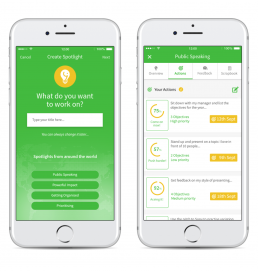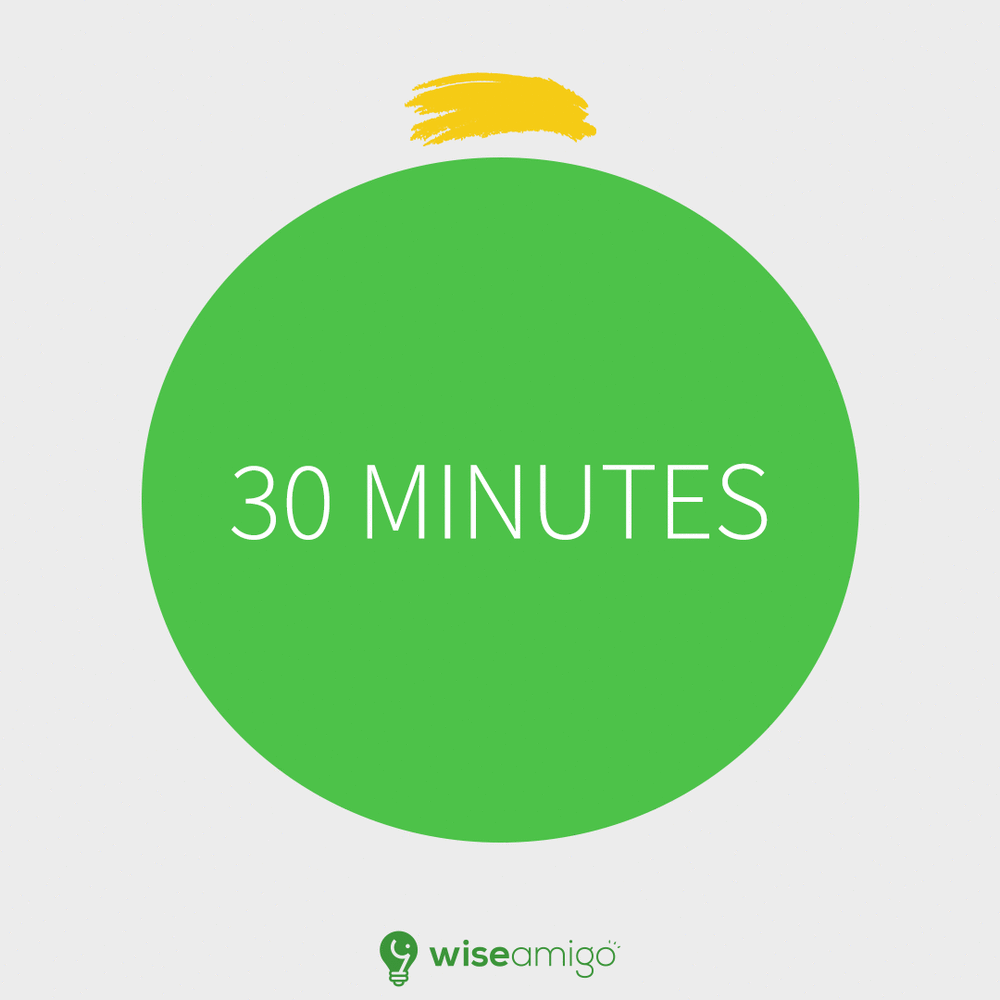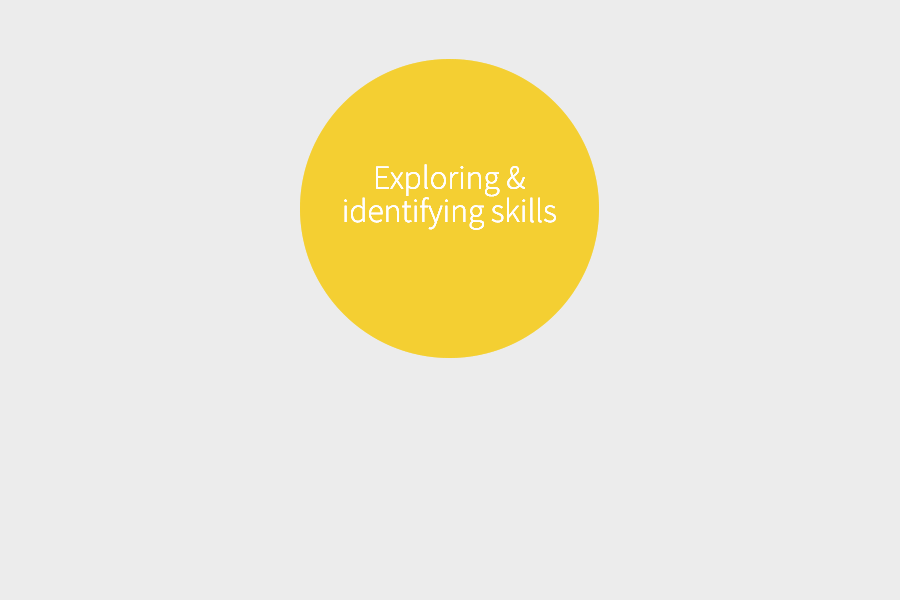Personal Development: Everything You Need to Know to Get Started.




What is Personal Development?
Personal development is about your growth and future. Identifying and building your strengths for work, as well as looking at areas you can improve for a great career.
This makes it personal. Unique to you.
Done right, personal development can be one of the most enjoyable journeys you ever make. But be in no doubt, it takes time, energy and commitment. Great planning to work out what you want now and in the future.
Sure, throughout our careers we continue to pick up skills and work things out through experience, trial and error, just like we did as children. But as adults we can be smarter. By planning and setting goals, reflecting and using tools or information to direct our personal growth. And using insight, feedback and advice from a range of people to understand our impact.
The way employment works today matters enormously too. Today’s employers want their people to be self-driven, self-aware and self-reliant. They need proactive employees who take the lead in their own development. So, by taking charge of your personal development, you’re showing them that you’re ready. Indeed, you might even be your own employer, so development will be your number one weapon to keep you at your peak and help you adapt as work changes.
Personal development’s more than just a process. It’s a mindset. You need the right skills, structure and approach. Make it a routine priority. A habit. Then you’ll be ready to meet any challenges. Because in the end, understanding your strengths and the areas you need to develop makes you more self-aware. Which ultimately leads to better career decisions.
Why look to develop?
Personal development rewards you in so many ways. Expanding your skills and abilities. Improving your style, confidence and self-awareness. Helping to boost your general well-being and happiness. The list is endless.
At WiseAmigo, we focus on helping you structure your development at work, so you feel confident about your skills, job and career. Why? Well, most of us spend over half our waking hours at, or thinking about work.
So, it makes sense that if you progress at work it’ll help improve your life overall. And if you can be more effective, more resilient or better organised, it can make you feel stronger and more positive every day.
It’s hard, so you need to put in the effort. To focus. To reflect. And to get other people to feed in.
It’s your development. Not something your employer does for or to you. So you need to lead it.
It’s about creating a mindset and positive habits. Actions really do speak louder than words.
Learning is part of development. But development is much bigger. Longer-term. Not a quick fix.
It’s about you, what you see and feel personally. So others might not always notice.
The case for taking action
Yes, development takes time. But you’ll gain a lot of small wins and reach a number of milestones along the way. So, it’s not just rewarding – you’ll enjoy it, too.
And with the way the work landscape’s changing, taking control of your own development will put you ahead of your competition. The rise of AI and automation means jobs are changing a lot. Businesses are looking for the kind of soft skills that aren’t being taught in the education system. And today over 96% of UK companies employ fewer than 10 people, so there’s no HR department. This means it’s more important than ever for you to take control.
Whatever stage of your career you’re at, this gives you a huge opportunity. Because, the beauty of personal development is that it’s never too late to make a change. If you understand your strengths, development areas and how they match your aspirations, you can progress.
Getting started
Whether you’re at the beginning of your career or you’ve years of experience, knowing where to start, what to focus on and how to do it can be hard. There are lots of views on how to engage with personal development.
Our advice is simple. Start small and don’t overthink it. You’re going to make mistakes no matter how experienced you are, so it’s best to just get on with it.
How to start
When thinking about your development it’s important to recognise that what works for one person, might not for another. And this is true throughout your career. We’re all different and there’s no one-size-fits-all approach.
You might like to dive straight into challenges. Or rather have some time to reflect. Maybe you respond best to feedback or like to plan and track your activities. Perhaps you prefer gaining ideas and inspiration from browsing videos or articles. Or maybe a mix. You’ll have your preferences. So, you just have to work out what works best for you.
When you consider development, it’s tempting to start thinking about really long-term possibilities. Maybe daydream about what you’ll be doing in ten years’ time… And almost separate your future self from your current situation. We’re all great at this. But it’s best to start small and create some momentum. Build up to the big picture with bitesize objectives. After all, Rome wasn’t built in a day.
Instead, think about what you’re doing right now. Look at your recent past and immediate future. Whether it’s your role, study, mini project or hobby. Think about what’s been taking up most of your time recently. And what’s going to dominate in the next couple of months. Evaluate your development in the here and now.
A structure for building awareness
At any point in your career, it pays to sit down and review where and what you’re up to. You might be able to just think it through. But if you prefer to put pen to paper, get out a big sheet and just start.
Think about what you enjoy and what frustrates you.
First, what do you enjoy? Think about your interests and the activities or tasks you keep coming back to because you like to. Or the kind of people or teams you prefer working with and why you like working with them.
Be brutally honest about what frustrates you. What would you be happy never doing in the job? Who would you be happy not working with again and why? Don’t be shy. It’s all part of understanding yourself.
Ponder what you’re good at, and what you’d like to be better at.
Think about your strengths. Analyse what you see as your key contributions – and be critical. Jot down some ideas. And you can ask others later about how they see you and your strengths.
And – the tough part – think about the areas you think you need to develop or improve. Try to pinpoint what might be holding you back at work or in your career. What are you fearful of? What would you like to feel better about in the job? Again, be honest.
Motivations, turn-offs and values
Now look at your current motivations. What gets you out of bed in the morning? When it comes to work, what do you really thrive on? What are you passionate about? What completely turns you off? Write it down.
Also, think longer term. Is there anything you want to achieve over time? It’s fine if you don’t know. That’s part of development– becoming more aware of what you like and want from work. But if you can, try to get some ideas about short, medium and long-term goals.
Time for a chat
If you’re really struggling, talk to someone you trust and who knows how you work. Ask them for feedback.
This can seem awkward, but it’s rewarding. People see you in an entirely unique way compared to how you see yourself. So they can be more critical about how you come across and impact on people.
Getting feedback could lead to ideas. Give you fresh insights. It might even turn up something you’ve never thought about before and kickstart your development.
With all of this, don’t try to kid yourself. Who does that help? You’re likely to overestimate the positives and you’ll find it hard to be objective about your difficulties. We all do it. The key is to be open and honest with yourself. This is also as much about understanding your values as anything.
Comparing the now with the future
By reflecting on your strengths and development areas you’re already more aware. But considering how your motivations can influence how you develop is also key.
Think about which strengths fit well with your motivations. Your passions. What you enjoy. You’ll find it easier to continue building on these. Because you like doing them.
The same goes for areas you want to improve. If your commitment matches your motivations, the chances are you’ll enjoy tackling them. For example, you want to work on your commercial awareness? If you enjoy working with numbers or looking at business trends, it makes it a whole lot easier.
On the flip side, if your development areas happen to include things that simply don’t float your boat then these could take longer to make progress on.
You’re not going to be motivated to do the things you don’t want to do. So, if you’re looking to grow in areas that don’t necessarily inspire you, be ready to work hard. It won’t be plain sailing.
It pays to be realistic about what you want and plot out the likely areas to work on along the way. It’s also a good idea to identify the kind of new skills you’ll need to gain for the roles you aspire to. Talk to the people who are in those positions already. Ask them for advice. What challenges have they faced? And what essential skills do they use every day?
If you’re starting out, you might simply focus on building confidence and core skills. For example, improving how you interact with others, think about problems, get stuff done or adapt to your environment. But if your ambitions are more focused then your development aims should be more specific.
So, if you know you want to lead projects, manage people or run your own business, you could focus on developing stakeholder management, assertiveness and leadership skills. Define your aims. And describe them.
Bringing it all together
Sit back and go through the information you’ve gathered. Reflect on what you’ve written yourself and what others have highlighted if you’ve managed to get some feedback.
In short, the key is to distil the main points from what you’ve written into big goals you can tackle regularly. We call these Spotlights.
A Spotlight can be anything you want. From being organised, to maybe improving public speaking or leading a team. The key is to decide on one or more Spotlights and commit to working on them.
Spotlights to identify:
Your standout areas to improve. If you can identify the key areas to work on, you’ll set yourself up for success. Use WiseAmigo to create and track these as Spotlights.
Strengths to build on. You can check what others think about a strength and build a way to make it even better. Again, these are perfect Spotlights to keep tabs on how you’re building your key skills.
Remember, your development is unique to you. So you’ll benefit in different ways from doing the following:
Capturing your developmental missions – for each Spotlight
Exploring expert views and what great looks like
Setting goals or taking actions with deadlines
Gaining new experiences, trying new things, joining groups
Forming new habits or building routines
Learning from challenges or failures
Gathering regular feedback
Asking others to rate you on key areas or performance
Carving out time for reflection, reflection, reflection and evaluation
Exploring theories and watching expert keynotes
Finding and scrapbooking ideas

Use the WiseAmigo platform to link your choices from the list to your specific developmental Spotlights. In no time at all, you can have several Spotlights, representing your key areas to focus on. What’s more, you’ll be able to track your progress and find inspirational insights.
Whether you simply decide to write down your mission and reflect regularly, create actions or goals, or get feedback from others, Spotlights will help you see progress. We’ve a useful feed for you to find ideas or inspiring content to help you along the way.
Look at our Journey to Assertiveness page as Joanna builds her confidence to speaking up in meetings. And if you need a little help to think and want to get busy with your pen, try the template here.
Making personal development habitual
Like anything in life, if it’s important to you, make time for it. Personal development’s no different. It’s a mindset. A way of thinking. And your progress will come from regular thought, habitual commitment and good discipline.
How to build habits
Make personal development a routine activity. A process that’s part of everyday life. Yes, you’re busy. Everyone is nowadays. So, you need something that’s with you as you’re on the go, as well as time set aside to reflect and think hard.
You can set reminders for any actions you create in your Spotlights. And if you’re looking for an accountability buddy, our Founder, Paul, runs a weekly live stream to help guide reflection.

For reflection, we recommend 30 minutes across a week dedicated to thinking about your development. Put protected time in your calendar. Block out distractions. Turn your notifications off. Close email. And have some you time.
This is YOUR TIME each week. Time to concentrate on recent developments – lessons, successes, strengths, reflections, feedback etc.
Using your 30 minutes
Pull up your Spotlights – that’s whatever you’re grappling with at the moment. No Spotlights yet? Login and create your first here. Having a set of Spotlights helps you to tackle your development in a simple and structured way.
Then, just pick a single Spotlight to focus one. Reflection needs to be focused. Targeted. So when reflecting, focus on one area of your development at a time.
For the first 20 minutes, ask yourself some questions about the Upsides – the positive from the prior week. And the Regrets – the things that didn’t quite work out.
Use your Scrapbook to capture your reflections. To help, think about the following:
Think about the upsides from the past week
What’s gone well this week? Why?
Have you tested yourself this week?
How did you expand your comfort zone?
What have you learned this week? What have you learned about yourself?
What wins, achievements or goals did you deliver on?
Did you get through what you wanted?
Did you show what you stand for or what you’re all about?
What strengths did you use well?
How have others positively contributed to your growth?
Did you have a breakthrough in your reflection?
Did you receive positive feedback or praise?
Reflect on the regrets from the past week
What’s not gone well this week?
What’s stopped you from being at your best?
How have you let yourself down?
How have you felt stuck?
What setbacks or failures have you experienced?
Who’s not helped or got in your way?
Has anything happened at all? Perhaps nothing of note?
Were you told something you didn’t want to hear?
What barriers reappeared?
How did your self-talk hamper you?
The Next Action
In the final 10 minutes, turn your answers into commitments. Highlight answers that can be turned into clear tasks or actions. Key opportunities to exploit? Create actions. People you could learn from? Ask for feedback. And if there are key reflections that you need more time to think about, scrapbook the notes.
Pop your commitments into the app under the relevant sections of your Spotlight – Actions, Feedback and Scrapbook. That way, they’re always in your pocket. So, when that flash of inspiration hits you, you can jot down your thoughts.

Check out our Live stream every Monday to do this with Paul. With routine reflection and weekly planning, you can quickly start to make personal development habitual. We’re all different, so how you define progress will be individual to you. But by following this advice, you’ll be much more likely to build awareness and feel positive about your development. And to feel confident about your growth.
How does your manager and employer fit in?
If you’re employed, then you’ll be able to get guidance and support from other sources to help you grow. If you want to be effective in your job and enjoy your time, you need to be honest and open with your manager about your development.
Let them know how you want to grow. Get them onside. Then they should support your growth with the kind of responsibilities that take you in the direction you want.
They’ll probably have their own ideas, too. They might suggest activities or responsibilities to help you move through the gears and progress. It’ll all help you contribute to your own development.
Here’s our take on how you can make the most of your development with the help of your employer. Along with some key questions and habits to build along the way.
Align your aims with your employer’s
You drive your development. Your employer drives theirs. To get the best out of each other, it’s key to understand each other’s perspective and see where they match.
Most of the time, your employer simply wants you to be more effective and productive. Which is probably close to how you’d like to feel at work too.
So, look for shared interests that work for both you and your manager. The sweet spots. For example, if your manager’s looking for you to be more organised, but you feel swamped with work, you’ll both benefit from working together to get a better handle on things. Likewise, if you can see they’re neglecting one aspect of the strategy that you feel ready to lead on, speak up. The dynamic will change the more senior both you, and your manager are. Two heads are always better than one, so ask for advice and support, no matter how experienced you are. But try to drive the ideas and direction yourself.
It’s still your development. It’s sensitive and personal. So, share what you need. And remember they’re paid to make you more effective and equipped to do your job. But appreciate their perspective too. Most of the time, they’ll have other things to focus on, so don’t take up all their time. After all, they’re probably feeling stretched. So, give them a break.
Also think about your manager’s knowledge, skills and abilities. What can you draw on? What characteristics could you build into your own style? How do they handle situations? Reflect on what they do well and where you can learn from them.
At the same time, watch out for the less effective things people do, too. Leaders or more senior colleagues aren’t always right. And they don’t have all the answers. Canvass opinion and look for different perspectives.
As well as sounding out your manager and team, look further afield. Think about people inside or outside your department who could mentor you. Or even beyond your organisation. You’ll find people you can learn from in all sorts of places. It takes time to connect with people too. So the sooner you start, the better.
As you move up into new roles and organisations, you should gradually need less and less from your managers. Of course, ultimately, you’ll be aiming for self-sufficiency. But that can take a long time.
Hey, it’s a journey. But a great one. You’re not alone either. Research suggests that people around you are keen to help, if you only ask for it.
And we’ll always be with you too. In your pocket, on your side. We’re WiseAmigo. Onwards.
Development is a journey. The WiseAmigo app and community are here to help you along the way. Join the WiseAmigo community, get a grip on your personal development, and take control of your future. Start by creating a Spotlight, then discover more insightful content to fuel your personal development journey!
References
Source: http://www3.weforum.org/docs/WEF_Future_of_Jobs.pdf
- 65% of children entering primary school today will ultimately end up working in completely new job types that don’t yet exist.
- On average, by 2020, more than a third of the desired core skill sets of most occupations will be comprised of skills that are not yet considered crucial to the job today, according to our respondents.
- Overall, social skills— such as persuasion, emotional intelligence and teaching others—will be in higher demand across industries than narrow technical skills, such as programming or equipment operation and control. In essence, technical skills will need to be supplemented with strong social and collaboration skills.
- Current trends could lead to a net employment impact of more than 5.1 million jobs lost to disruptive labour market changes over the period 2015–2020.
A total of 66 million jobs worldwide are at risk of significant automation.
- Nedelkoska, L. and G. Quintini (2018), “Automation, skills use and training”, OECD Social, Employment and Migration Working Papers, No. 202, OECD Publishing, Paris. http://dx.doi.org/10.1787/2e2f4eea-en
96% of businesses have fewer than 10 employees.
- http://researchbriefings.files.parliament.uk/documents/SN06152/SN06152.pdf
- https://www.gov.uk/government/statistics/business-population-estimates-2017
Millennials Want Jobs to Be Development Opportunities




